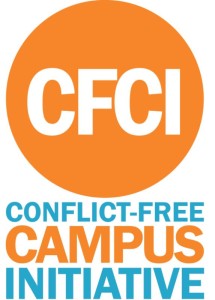
Since 2010, international civil society efforts have made major strides towards the elimination of conflict minerals from the global electronics supply chain. By preventing mined gold, tin, tantalum, and tungsten (“conflict minerals”) from providing income to warring factions in the Democratic Republic of Congo, these efforts have helped break the link between minerals and the region’s deadly conflict. Regrettably, the U.S. government’s own conflict-free efforts have come under siege by the Trump administration.
One such imperiled federal effort is “the Conflict Minerals Rule,” enshrined into law by Section 1502 of the Dodd-Frank Wall Street Reform and Consumer Protection Act, which requires companies to annually disclose the sources of their manufacturing inputs. The rule has not entirely stamped out the conflict minerals trade, but it has gone a long way towards holding American companies’ supply chains to high standards and cleaning up the eastern Congo’s mining industry.
Section 1502 now alarmingly currently sits in the crosshairs, with reports suggesting that it may be suspended or weakened. This news comes despite a resounding chorus of support for the continuation of the rule from Congolese civil society, which pushed for the provision in the first place. Their strong support for Section 1502 stems from the fact that it has significantly reduced mining income for armed groups in eastern Congo and drastically increased the transparency of corporate supply chains. While President Trump is considering the suspension of this rule, Congolese civil society organizations have forcefully endorsed its strengthening. These groups have also rightly warned that an end to the American government’s decisive stance in opposition to conflict minerals will reenergize Congolese militias that rely on illegal mining operations for funding.
Other governments are also taking bold steps to promote a conflict-free Congo. For example, Canada’s new ethical-trade program is using cutting-edge data collection to ensure fair worker standards at mines linked to the consumer electronics industry. The European Union recently enacted a law blocking conflict mineral imports to Europe, marking an historic feat in the fight to purge militia-mined products from the global marketplace. Repealing or weakening Section 1502 of Dodd-Frank will only alienate the United States from its peer countries. A repeal will send a clear message that the American government prioritizes corporate profits over Congolese lives.
As student organizers working to ensure conflict-free supply chains, we urge supporters of peace in the Congo to renew their commitments to fair mining practices.
Click here to read a statement signed by leaders of the Conflict-Free Campus Initiative, a joint initiative from STAND and the Enough Project.
Christopher Hanna authored this article on the behalf of Amnesty International at Cornell University. He is the co-founder of Cornell Amnesty International and a Conflict-Free Campus Initiative organizer. A senior at Cornell University, he strives to build up the labor and human rights movements on college campuses and beyond.

